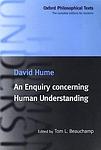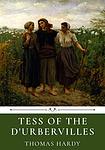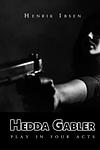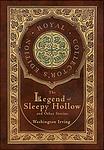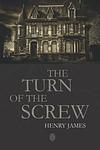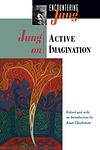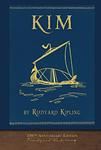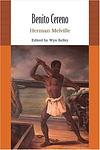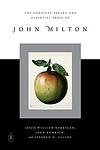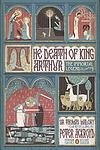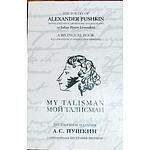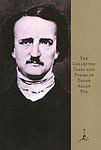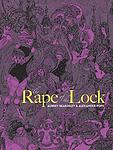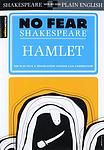Masterpieces of World Literature
This is one of the 300 lists we use to generate our main The Greatest Books list.
-
She Stoops to Conquer by Oliver Goldsmith
"She Stoops to Conquer" is a comedic play that revolves around the story of a wealthy countryman, Mr. Hardcastle, who arranges for his daughter, Kate, to meet Charles Marlow, the son of a wealthy Londoner, hoping the pair will marry. However, Marlow is nervous around upper-class women, yet gets along fine with lower-class women. Kate learns of this and pretends to be 'common' to get to know him. The play concludes with Kate revealing her true identity, and Marlow, who is in love by this point, is relieved she's actually of the upper class. The play explores themes of class, courtship, and the deceptive nature of appearances.
The 1588th Greatest Book of All Time -
The Odes by Horace
"The Odes" is a collection of lyric poems by an ancient Roman poet. The poems cover a wide range of themes, including love, friendship, wine, nature, morality, and the human condition. The author's style is noted for its elegance, wit, and mastery of meter. The poems also reflect the social and political context of Rome during the author's lifetime, providing insight into the culture and values of the period.
The 1062nd Greatest Book of All Time -
Dream of the Red Chamber by Cao Xueqin
"Dream of the Red Chamber" is a classic Chinese novel that provides a detailed, episodic record of life in the aristocratic Jia family. The story revolves around the love triangle between the family's heir, his sickly cousin, and his other cousin who is raised to be his wife. It is also a critique of the family's decline and a reflection on the societal norms of the time. The novel is famous for its vivid characterization and psychological depth, and its unique portrayal of Chinese society during the Qing dynasty.
The 580th Greatest Book of All Time -
An Enquiry Concerning Human Understanding by David Hume
This philosophical work explores the nature of human knowledge, arguing that all of our understanding comes from experience rather than innate ideas. The author challenges the idea of causality, suggesting that our belief in cause and effect is based on habit rather than logical reasoning. The book also discusses the limitations of human understanding, including the inability to fully comprehend the concept of God or the soul, and the impossibility of certain knowledge. The author's skepticism about traditional philosophical concepts has had a significant influence on later philosophers and the field of epistemology.
The 974th Greatest Book of All Time -
A Farewell to Arms by Ernest Hemingway
Set during World War I, the novel follows an American ambulance driver in the Italian army and his love affair with a British nurse. The story is a first-person account of the protagonist's experiences in war and his struggle to survive amidst chaos and destruction. The narrative explores themes of love, war, and the fragility of life, culminating in a tragic ending that underscores the futile nature of war and the inevitable suffering it brings.
The 116th Greatest Book of All Time -
For Whom the Bell Tolls by Ernest Hemingway
Set in the backdrop of the Spanish Civil War, the novel follows the story of an American dynamiter, who is assigned the task of blowing up a bridge during a crucial attack on the city of Segovia. Alongside the war narrative, the story also explores his relationships with various characters, including his love affair with a young Spanish woman. The narrative beautifully encapsulates themes of love, war, death, and the transient nature of life.
The 80th Greatest Book of All Time -
The Histories of Herodotus by Herodotus
"The Histories of Herodotus" is an ancient text that provides a comprehensive account of the Greco-Persian Wars. It is often considered the first work of history in Western literature. The author, often referred to as the 'Father of History', provides a narrative that not only discusses the conflicts between the Greeks and Persians, but also delves into the customs, geography, and history of each civilization. This detailed and pioneering work has greatly contributed to our understanding of the ancient world.
The 310th Greatest Book of All Time -
The House of the Seven Gables by Nathaniel Hawthorne
This novel revolves around the cursed Pyncheon family, who live in a gloomy New England mansion, cursed due to the actions of their ancestor who had an innocent man hanged as a witch to seize his property. The story explores themes of guilt, retribution, and atonement, and the narrative is interspersed with the author's philosophical musings. The present-day Pyncheons include an old maid, a daguerreotypist, and their elderly, reclusive cousin who returns to the house after a mysterious absence of many years.
The 486th Greatest Book of All Time -
The Hunchback of Notre-Dame by Victor Hugo
Set in 15th-century Paris, this novel follows the story of Quasimodo, a deformed and hunchbacked bell-ringer of Notre-Dame Cathedral, who is shunned due to his appearance. Despite his physical deformities, Quasimodo falls in love with the beautiful gypsy girl, Esmeralda. However, his love is unrequited as she is in love with a handsome soldier. The novel explores themes of love, rejection, and the human struggle against fate and societal norms.
The 383rd Greatest Book of All Time -
Hunger by Knut Hamsun
This novel is a psychological journey through the mind of a starving young writer in 19th century Norway. Driven by pride and stubbornness, he refuses to accept help and instead chooses to endure severe hunger and the mental and physical deterioration it causes. His struggle is not only with his physical condition but also with his own mind as he battles hallucinations, mood swings, and an increasingly distorted perception of reality. The book is a profound exploration of poverty, mental illness, and the human will to survive.
The 299th Greatest Book of All Time -
The Iliad by Homer
This epic poem focuses on the final weeks of the Trojan War, a conflict between the city of Troy and the Greek city-states. The story explores themes of war, honor, wrath, and divine intervention, with a particular focus on the Greek hero Achilles, whose anger and refusal to fight have devastating consequences. The narrative also delves into the lives of the gods, their relationships with humans, and their influence on the course of events.
The 36th Greatest Book of All Time -
Jude the Obscure by Thomas Hardy
This novel tells the story of Jude Fawley, a working-class young man who dreams of becoming a scholar. The traditional class structure in 19th-century England prevents him from realizing his dream and his only solace is his love for his cousin, Sue Bridehead. Their scandalous relationship and the tragic events that follow form the heart of the narrative, which explores themes of love, class, religion, and morality.
The 230th Greatest Book of All Time -
Leviathan by Thomas Hobbes
"Leviathan" is a seminal work of political philosophy that presents an argument for a social contract and rule by an absolute sovereign. The author argues that civil peace and social unity are best achieved by the establishment of a commonwealth through social contract. He suggests that without a strong, central authority to impose law and order, society would descend into a state of nature, characterized by perpetual war and chaos. The book is divided into four parts: Of Man, Of Commonwealth, Of a Christian Commonwealth, and Of the Kingdom of Darkness.
The 339th Greatest Book of All Time -
Les Misérables by Victor Hugo
Set in early 19th-century France, the narrative follows the lives and interactions of several characters, particularly the struggles of ex-convict Jean Valjean and his journey towards redemption. The story touches upon the nature of law and grace, and elaborates upon the history of France, architecture of Paris, politics, moral philosophy, antimonarchism, justice, religion, and the types and nature of romantic and familial love. It is known for its vivid and relatable characters, and its exploration of societal and moral issues.
The 46th Greatest Book of All Time -
The Odyssey by Homer
This epic poem follows the Greek hero Odysseus on his journey home after the fall of Troy. It takes Odysseus ten years to reach Ithaca after the ten-year Trojan War. Along the way, he encounters many obstacles including mythical creatures, divine beings, and natural disasters. Meanwhile, back in Ithaca, his wife Penelope and son Telemachus fend off suitors vying for Penelope's hand in marriage, believing Odysseus to be dead. The story concludes with Odysseus's return, his slaughter of the suitors, and his reunion with his family.
The 28th Greatest Book of All Time -
The Old Man and the Sea by Ernest Hemingway
An aging Cuban fisherman struggles with a giant marlin far out in the Gulf Stream, isolated from the world and from human help. For days, he fights the marlin alone, admiring its strength, dignity, and faithfulness to its identity—its destiny is as true as his as a fisherman. He finally kills the marlin, but sharks attack and devour it before he can return to the shore. The fisherman returns home empty-handed but remains undefeated, having proven his abilities to himself.
The 81st Greatest Book of All Time -
The Return of the Native by Thomas Hardy
This classic novel is set in the rustic rural backdrop of Egdon Heath and revolves around the life of Clym Yeobright, a successful diamond merchant who returns to his native land from Paris. His return sparks a chain of events involving love, ambition, betrayal, and tragedy. His love interest, Eustacia Vye, dreams of escaping the monotonous rural life, while his mother disapproves of their relationship. The novel explores the themes of love, fate, chance, and the clash between individuals' aspirations and societal expectations.
The 385th Greatest Book of All Time -
The Scarlet Letter by Nathaniel Hawthorne
Set in 17th-century Puritan Boston, this novel tells the story of a woman who conceives a daughter through an affair and struggles to create a new life of repentance and dignity. She is forced to wear a scarlet "A" on her dress as a sign of her adultery while her lover, a revered local minister, remains unnamed and unpunished. Throughout the book, themes of sin, legalism, and guilt are explored.
The 58th Greatest Book of All Time -
Tess of the d'Urbervilles by Thomas Hardy
This is a tragic tale of a young woman named Tess who comes from a poor family in rural England. Tess is sent to work for a wealthy family, where she is seduced by a man who abandons her after she becomes pregnant. The baby dies, and Tess is ostracized by her community. She falls in love with a kind man, but when she confesses her past, he rejects her. Desperate and heartbroken, Tess murders her former seducer and is eventually captured and executed. The novel explores themes of fate, injustice, and the oppressive sexual morals of its time.
The 82nd Greatest Book of All Time -
Works and Days by Hesiod
"Works and Days" is an ancient Greek epic poem that provides advice on life and farming. The author uses the myth of Prometheus and Pandora to explain why life is hard for humans, attributing it to Pandora's release of evils into the world. The work serves as a farmer's almanac, giving detailed advice on the best times to plant and harvest crops, and also provides moral guidance, emphasizing the importance of hard work, justice, and piety.
The 1462nd Greatest Book of All Time -
A Doll's House by Henrik Ibsen
This classic play focuses on the life of Nora Helmer, a woman living in a seemingly perfect marriage with her husband, Torvald. However, as the story unfolds, it becomes clear that Nora has been hiding a significant secret related to their finances. The revelation of this secret, and the subsequent fallout, challenges societal norms and expectations of the time, particularly in regards to gender roles and the institution of marriage. Nora's eventual decision to leave her husband and children in pursuit of her own independence serves as a powerful commentary on individual freedom and self-discovery.
The 323rd Greatest Book of All Time -
An Enemy of the People by Henrik Ibsen
An Enemy of the People is a drama about a doctor in a small Norwegian town who discovers that the local baths, a source of pride and income for the community, are contaminated and dangerous to public health. Despite the potential harm to the town's residents, the doctor's warnings are ignored by the town's authorities and citizens due to the potential economic fallout. The doctor is ostracized and declared an 'enemy of the people,' leading to a critique of the democratic process and the responsibilities of individuals to their community.
The 5725th Greatest Book of All Time -
Hedda Gabler by Henrik Ibsen
"Hedda Gabler" is a dramatic play that centers on the life of its titular character, a woman trapped in a loveless marriage with a dull, reliable husband. She is bored with her life and longs for freedom and excitement. Her desire for control and power leads her to manipulate those around her, resulting in tragic consequences. The play explores themes of societal expectations, personal freedom, and the destructive power of boredom.
The 1489th Greatest Book of All Time -
Stories of Washington Irving by Washington Irving
The book is a collection of short stories penned by one of America's earliest celebrated authors. It includes a variety of tales ranging from the supernatural to historical fiction, all characterized by the author's distinctive narrative style. Some of the most notable stories include a schoolmaster's encounter with a headless horseman, a man who sleeps for twenty years, and a tale of a man who sells his soul to the devil. The stories are set in various locations, from the Hudson Valley to Europe, and they often reflect the author's satirical and humorous view of society.
The 1685th Greatest Book of All Time -
The Alchemist by Paulo Coelho
A young Andalusian shepherd named Santiago dreams of finding a worldly treasure and sets off on a journey across the Egyptian desert in search of it. Along the way, he encounters a series of characters who impart wisdom and help guide his spiritual journey. The novel explores themes of destiny, personal legend, and the interconnectedness of all things in the universe. The boy learns that true wealth comes not from material possessions, but from self-discovery and attaining one's "Personal Legend".
The 305th Greatest Book of All Time -
The Ambassadors by Henry James
The novel centers around a middle-aged man named Lambert Strether who is sent from New England to Paris by a wealthy widow, Mrs. Newsome, to convince her wayward son, Chad, to return home. However, upon arriving in Europe, Strether is charmed by the sophisticated lifestyle Chad has adopted and finds himself questioning the puritanical values of his homeland. He also becomes entangled in romantic relationships and complex social dynamics, leading him to ultimately question his loyalty to Mrs. Newsome. The book explores themes of morality, identity, and the concept of the American versus European lifestyle.
The 207th Greatest Book of All Time -
The Golden Bowl by Henry James
The Golden Bowl is a complex narrative that revolves around an American woman and her daughter who marry a father and son. The daughter's husband previously had a romantic relationship with the mother's husband, leading to a tense and intricate web of relationships. The novel explores themes of marriage, adultery, and familial bonds, and is renowned for its detailed characterization and intricate plot structure.
The 457th Greatest Book of All Time -
The Portrait of a Lady by Henry James
This classic novel explores the life of a young, independent American woman who inherits a large amount of money and moves to Europe, where she falls into a manipulative and oppressive marriage. The story delves into themes of personal freedom, responsibility, and betrayal, as the protagonist navigates the complexities of high society, love, and the consequences of her choices.
The 63rd Greatest Book of All Time -
A Portrait of the Artist as a Young Man by James Joyce
This novel is a semi-autobiographical account of a young man's intellectual and artistic development in late 19th-century Ireland. The protagonist struggles with issues of identity, faith, and nationality, ultimately rejecting the traditional values of his Catholic upbringing to pursue his own path as an artist. The book is renowned for its innovative narrative style and its exploration of themes such as individuality, freedom, and the nature of art.
The 69th Greatest Book of All Time -
Pragmatism by William James
The book in question is a seminal work in the philosophical tradition of pragmatism, which argues that the truth of ideas is measured not by their correspondence to an objective reality, but by their practical effects and utility. The author challenges the notion of fixed, absolute truths, proposing instead that beliefs should be seen as tools for action and that their validity depends on their success in solving problems and guiding experiences. Through a series of lectures, the text explores the implications of this philosophy for various fields, including religion, metaphysics, and science, ultimately advocating for a more flexible, open-ended approach to thinking and a tolerance for diverse perspectives in the pursuit of knowledge and understanding.
The 621st Greatest Book of All Time -
The Turn of the Screw by Henry James
A young governess is hired to care for two children at a remote English estate. However, she soon becomes convinced that the grounds are haunted by two former employees who have taken control of the children. As she fights to free the children from these apparitions, the line between reality and her own fears becomes increasingly blurred, leading to a chilling and ambiguous conclusion.
The 268th Greatest Book of All Time -
Two Essays on Analytical Psychology by Carl Jung
This book contains two comprehensive essays that delve into the depths of analytical psychology. The first essay explores the role of the unconscious in the human psyche, discussing its influence on dreams, mythology, and mental illnesses. The second essay delves into the process of individuation, which is the psychological process of integrating the conscious and unconscious parts of the mind to achieve self-actualization. This work is a foundational text in understanding the theories and concepts of analytical psychology.
The 5725th Greatest Book of All Time -
Ulysses by James Joyce
Set in Dublin, the novel follows a day in the life of Leopold Bloom, an advertising salesman, as he navigates the city. The narrative, heavily influenced by Homer's Odyssey, explores themes of identity, heroism, and the complexities of everyday life. It is renowned for its stream-of-consciousness style and complex structure, making it a challenging but rewarding read.
The 3rd Greatest Book of All Time -
Volpone by Ben Jonson
"Volpone" is a satirical comedy set in 17th century Venice, where the cunning protagonist, Volpone, and his servant, Mosca, swindle the city's wealthy elite by pretending Volpone is on his deathbed and in need of a worthy heir. This prompts a series of greedy contenders who offer extravagant gifts in hope of being named the heir. Despite their successful deceit, their scheme is eventually exposed, leading to their downfall. The story serves as a critique of greed and corruption, highlighting the destructive power of unchecked ambition.
The 3357th Greatest Book of All Time -
The Castle by Franz Kafka
This novel presents the story of a man who arrives in a village and struggles to gain access to the mysterious authorities who govern it from a castle. The protagonist, a surveyor, faces the constant frustration of his efforts to make contact with the elusive authorities and integrate into village society. The book explores themes of alienation, bureaucracy, the seemingly endless frustrations of man's attempts to stand against the system, and the futile pursuit of an unobtainable goal.
The 133rd Greatest Book of All Time -
Critique of Pure Reason by Immanuel Kant
This philosophical work delves into the nature and limits of human knowledge, proposing that while our knowledge begins with experience, it doesn't necessarily arise out of experience. The author argues that pure reason itself has the ability to contribute to our knowledge and understanding of the universe. He further explores the concept of metaphysics, asserting that while it is possible, it is also severely limited by the human mind's ability to comprehend it.
The 393rd Greatest Book of All Time -
The Poems of John Keats by John Keats
This book is a compilation of poems by a renowned Romantic poet, who is recognized for his eloquent and expressive use of language. It includes his most famous works, often exploring themes of love, beauty, mortality, and the human condition. The collection showcases the poet's unique ability to capture the intricacies of human emotions and the beauty of nature, making it a must-read for lovers of classic English literature and poetry.
The 1055th Greatest Book of All Time -
Kim by Rudyard Kipling
"Kim" is a thrilling adventure set in India during the height of the British empire. The story follows the life of a young Irish orphan, Kimball O'Hara, who grows up on the streets of Lahore. Kim's life takes a dramatic turn when he becomes involved in the 'Great Game', the political conflict between Russia and Britain in Central Asia. Guided by an old Tibetan Lama on a spiritual quest, Kim is recruited by the British secret service and sent on a dangerous mission across the Himalayas. The novel explores themes of identity, imperialism, and East vs. West.
The 220th Greatest Book of All Time -
The Sickness Unto Death by Soren Kierkegaard
This philosophical work explores the concept of despair, which the author sees as a spiritual condition linked to the Christian concept of sin. The author delves into the human struggle to reconcile the self with the ideal self, a process he argues is only possible through a relationship with God. The book also discusses existential dread, self-awareness, and the nature of the human soul, offering a complex and thought-provoking examination of the human condition.
The 2266th Greatest Book of All Time -
The Trial by Franz Kafka
The book revolves around a bank clerk who wakes one morning to find himself under arrest for an unspecified crime. Despite not being detained, he is subjected to the psychological torment of a bizarre and nightmarish judicial process. The story is a critique of bureaucracy, exploring themes of guilt, alienation and the inefficiency of the justice system.
The 39th Greatest Book of All Time -
Babbitt by Sinclair Lewis
"Babbitt" is a satirical novel that explores the life of a prosperous, middle-aged businessman living in a Midwestern city during the 1920s. Despite his apparent success and conformity to societal norms, the protagonist feels a deep dissatisfaction with his life and the monotony of his daily routines. This leads him to rebel against the conservative values of his community, resulting in personal and social upheaval. The book critically examines the American middle class and the pressures of conformism, materialism, and status anxiety.
The 233rd Greatest Book of All Time -
Daphnis and Chloe by Longus
"Daphnis and Chloe" is a classic pastoral romance that tells the story of two young people, Daphnis and Chloe, who grow up together on the same farm in ancient Greece. Despite their humble beginnings as foundlings, they fall in love as they mature, but are initially too naive to understand their feelings. The narrative follows their journey towards understanding and expressing their love for each other, amidst various comedic and dramatic obstacles, including pirates, rival suitors, and the revelation of their true noble parentage.
The 2144th Greatest Book of All Time -
An Essay Concerning Human Understanding by John Locke
This philosophical work explores the concept of human understanding, proposing that all knowledge is derived from experience. The author argues against innate ideas, suggesting instead that the mind is a blank slate at birth, filled over time through sensory and reflective experiences. The book covers a wide range of topics, including language, memory, identity, and the limits of human knowledge, and is considered a foundational text in empiricism.
The 732nd Greatest Book of All Time -
Main Street by Sinclair Lewis
This novel is a satirical critique of small-town life, following the story of a young, ambitious woman who moves from the city to a quiet, conservative town in the Midwest with her new husband. Despite her attempts to bring culture and progress to the town, she is met with resistance and ostracism from the closed-minded locals. The protagonist's struggle against traditional norms and her ultimate disillusionment highlight the stifling conformity and lack of intellectual stimulation in rural America.
The 407th Greatest Book of All Time -
De Rerum Natura by Lucretius
"De Rerum Natura" is a long didactic poem written in the first century BC, which explores Epicurean philosophy and the nature of the universe. The text delves into topics such as the nature of the gods, the atomic structure of the universe, human sensation and thought, and the fear of death. The author argues that understanding the physical world can free humans from superstition and fear, leading to peace of mind and true happiness.
The 489th Greatest Book of All Time -
Sons and Lovers by D. H. Lawrence
"Sons and Lovers" is a semi-autobiographical novel that explores the complex relationships between a miner's wife, her husband, and their two sons. The story focuses on the intense emotional and psychological bonds between the mother and her sons, as well as the struggles they face in their romantic relationships due to their deep attachment to their mother. The novel delves into themes of class, love, sexuality, and the oedipal complex, presenting a vivid picture of working-class life in early 20th century England.
The 127th Greatest Book of All Time -
Areopagitica by John Milton
"Areopagitica" is a powerful 17th-century polemic against censorship and a passionate defense of the freedom of speech and expression. The author argues against the Licensing Order of 1643, which allowed the British government to censor literature and other forms of expression. He asserts that censorship is a form of tyranny and that in a true republic, freedom of thought and discussion should be promoted, not suppressed. The author also contends that exposure to a wide range of viewpoints, including those that may be false or harmful, is necessary for intellectual and moral growth.
The 2042nd Greatest Book of All Time -
Benito Cereno by Herman Melville
"Benito Cereno" is a novella that tells the story of an American sea captain, Amasa Delano, who comes across a ship in distress off the coast of Chile. The ship, led by Captain Benito Cereno, appears to be in a state of disarray, with a mixed crew of Spanish sailors and African slaves. Throughout the story, Delano is kept in the dark about the true state of affairs on the ship, and it's only at the very end that he discovers a shocking truth - the slaves have revolted and are in control, with Cereno their captive. The novella is a tense exploration of power dynamics, race, and the nature of freedom.
The 2267th Greatest Book of All Time -
Billy Budd by Herman Melville
Set in the late 18th century, this novel tells the story of Billy Budd, a handsome, charismatic, but uneducated sailor who is forced to leave his merchant ship and join the crew of a British warship. Despite his popularity among the crew, he inadvertently makes an enemy of the master-at-arms, who falsely accuses him of mutiny. In a moment of panic, Budd accidentally kills his accuser, leading to his own court-martial and execution, despite the captain's reluctance and the crew's support. The novel explores themes of innocence, corruption, and the complexities of moral judgment.
The 1281st Greatest Book of All Time -
Buddenbrooks by Thomas Mann
"Buddenbrooks" is a novel that chronicles the decline of a wealthy north German merchant family over the course of four generations. The narrative focuses on the fluctuating fortunes and internal struggles of the family, reflecting the societal changes and economic decline of the period. The family's personal and business relationships, their moral values, and their struggle to maintain social status are all explored against the backdrop of the changing political and social landscape.
The 151st Greatest Book of All Time -
Death in Venice by Thomas Mann
"Death in Venice" is a novella that explores the life of Gustav von Aschenbach, a famous writer in his early fifties who embarks on a journey to Venice after experiencing a creative block. In Venice, he becomes obsessed with a beautiful Polish boy named Tadzio, whom he sees at the hotel where he is staying. Aschenbach's fascination with Tadzio becomes a metaphor for his own internal struggle with his repressed passions and his need for aesthetic beauty. The story culminates in Aschenbach's death as a cholera epidemic sweeps through Venice. His demise symbolizes the destructive power of his unfulfilled longing and his ultimate surrender to his repressed desires.
The 458th Greatest Book of All Time -
Doctor Faustus by Thomas Mann
The novel is a reimagining of the Faust legend set in the context of the first half of the 20th century and the turmoil of Germany in that period. It tells the story of a composer who makes a pact with the devil, exchanging his soul for unlimited creative genius. The protagonist's life and work reflect the cultural and political journey of Germany leading up to World War II, providing a deep exploration of the individual's role in a society undergoing dramatic change. The novel is also a profound meditation on the nature of time, the art and the artist, and the destructiveness of human ambition.
The 150th Greatest Book of All Time -
Essays by Michel de Montaigne
This collection of essays explores a wide range of topics such as solitude, cannibals, the power of the imagination, the education of children, and the nature of friendship. The author employs a unique and personal approach to philosophy, using anecdotes and personal reflections to illustrate his points. The essays provide a profound insight into human nature and condition, and are considered a significant contribution to both literature and philosophy.
The 110th Greatest Book of All Time -
Das Kapital by Karl Marx
This influential work is a comprehensive critique of political economy, exploring the complex nature of capitalism, its production processes, and its societal impact. The book delves into the intricacies of commodities, labor theory of value, surplus value, and exploitation, arguing that capitalism is inherently unstable and prone to periodic crises. It also posits that the capitalist system ultimately leads to the concentration of wealth in fewer hands, causing social inequality and paving the way for its own demise. The book is widely regarded as a foundational text in the development of socialist and communist ideologies.
The 403rd Greatest Book of All Time -
The Complete Poetry and Essential Prose of John Milton by John Milton
This book is a comprehensive collection of the well-known English poet's work, including his complete poetry and essential prose. It provides readers with a deep dive into his profound and influential writings that range from religious and political themes to classic epic literature. The volume also includes his most famous pieces, such as "Paradise Lost", "Paradise Regained", and "Samson Agonistes". The collection is accompanied by detailed notes and commentary, offering insights into the historical and literary context of the works.
The 4005th Greatest Book of All Time -
The Magic Mountain by Thomas Mann
In this novel, the protagonist, a young, ordinary man, visits his cousin at a tuberculosis sanatorium in the Swiss Alps. Intending to stay for only a few weeks, he ends up remaining there for seven years, becoming a patient himself. The book explores his experiences and relationships with other patients and staff, delving into philosophical discussions on life, time, and the nature of disease. It also provides a vivid portrayal of the European society and intellectual life on the eve of World War I.
The 43rd Greatest Book of All Time -
The Misanthrope by Molière
"The Misanthrope" is a satirical play that explores the hypocrisy and corruption of French aristocratic society through the eyes of the protagonist, a man who insists on absolute honesty and despises flattery, insincerity, and social conventions. Despite his disdain for society, he falls in love with a coquette who embodies everything he detests, leading to a series of comedic and dramatic situations. The narrative ultimately emphasizes the importance of balance between truth and courtesy in social interactions.
The 1606th Greatest Book of All Time -
Moby Dick by Herman Melville
The novel is a detailed narrative of a vengeful sea captain's obsessive quest to hunt down a giant white sperm whale that bit off his leg. The captain's relentless pursuit, despite the warnings and concerns of his crew, leads them on a dangerous journey across the seas. The story is a complex exploration of good and evil, obsession, and the nature of reality, filled with rich descriptions of whaling and the sea.
The 9th Greatest Book of All Time -
Le Morte d'Arthur by Thomas Malory
This classic work is a compilation of stories and legends about the legendary King Arthur, his knights, and the Round Table. It tells of Arthur's rise to power, his quest for the Holy Grail, and his tragic downfall. The book, written in the 15th century, is considered one of the most influential pieces of Arthurian literature and has significantly shaped the modern perception of Arthur, Merlin, Guinevere, Lancelot, and other iconic characters.
The 360th Greatest Book of All Time -
On Liberty by John Stuart Mill
This influential philosophical work explores the concept of personal freedom and societal limits, arguing that individuals should have the right to act as they want, provided they do not harm others. The book elaborates on the nature and limits of the power that can be legitimately exercised by society over the individual, and champions individuality and nonconformity. It also discusses freedom of speech, asserting that all opinions should be openly expressed to prevent any single viewpoint from becoming dogma.
The 508th Greatest Book of All Time -
Paradise Lost by John Milton
"Paradise Lost" is an epic poem that explores the biblical story of Adam and Eve's fall from grace in the Garden of Eden. It delves into their temptation by Satan, their subsequent expulsion, and the consequences of their disobedience. The narrative also provides a complex portrayal of Satan as a rebellious angel, who, after being cast out of Heaven, seeks revenge by causing mankind's downfall. The poem is a profound exploration of free will, divine justice, and the human struggle with good and evil.
The 106th Greatest Book of All Time -
The Prince by Niccolo Machiavelli
This classic work of political philosophy provides a pragmatic guide on political leadership and power, arguing that leaders must do whatever necessary to maintain authority and protect their states, even if it means compromising morality and ethics. The book explores various types of principalities, military affairs, the conduct of great leaders, and the virtues a prince should possess. It is known for its controversial thesis, which suggests that the ends justify the means in politics.
The 86th Greatest Book of All Time -
Spoon River Anthology by Edgar Lee Masters
"Spoon River Anthology" is a collection of short free-form poems that tell the epitaphs of the residents of a fictional small town, Spoon River, which is modeled after the small towns of the author's youth. The poems reveal the honest, often harsh realities of life, as each deceased citizen tells their own tale of love, despair, success, failure, and the human condition. The book is a commentary on the hypocrisy, moral corruption, and societal constraints of early 20th century rural America.
The 2206th Greatest Book of All Time -
Tartuffe by Molière
This classic French play revolves around the character Tartuffe, a hypocritical and cunning man who pretends to be deeply pious and religious. He manages to deceive Orgon, a wealthy family patriarch, into believing in his piety. Orgon is so taken in by Tartuffe that he decides to marry him off to his daughter, despite her love for another man. The family works together to expose Tartuffe's true nature, leading to a series of comic and dramatic events. The play is a satirical critique of religious hypocrisy and gullibility.
The 529th Greatest Book of All Time -
Utopia by Thomas More
This book is a fictional work that presents a detailed description of an ideal society on an imaginary island located in the Atlantic Ocean. The narrative is presented as a dialogue between the author's character and a traveler who has visited the island. The society described is devoid of private property, with citizens living in communal dwellings, and it promotes education, religious tolerance, and a welfare state. The book explores political, social, and religious customs, providing a critique of European society and offering an alternative model of social organization.
The 857th Greatest Book of All Time -
Beyond Good and Evil by Friedrich Nietzsche
"Beyond Good and Evil" is a philosophical work that challenges the moral conventions of the time, arguing that concepts of good and evil are not absolute but are instead social constructs. The book delves into the nature of individual morality, asserting that it is driven by self-interest and the will to power. It also criticizes past philosophers for their unquestioning acceptance of religious and societal norms, and promotes the idea of the "overman" or "superman", a superior human who embraces his instincts and creates his own values.
The 1106th Greatest Book of All Time -
Thus Spake Zarathustra by Friedrich Nietzsche
This philosophical novel explores the idea of the Übermensch, or "Overman," a superior human being who has achieved self-mastery and created personal meaning in life. The protagonist, Zarathustra, descends from his solitary life in the mountains to share his wisdom with humanity. Through a series of speeches and encounters, he challenges traditional beliefs about good, evil, truth, and religion, and advocates for the transcendence of man into a higher form of existence. The book is noted for its critique of morality, its poetic and often cryptic language, and its exploration of complex philosophical concepts.
The 281st Greatest Book of All Time -
Metamorphoses by Ovid
"Metamorphoses" is a classical epic poem that narrates the history of the world from its creation to the deification of Julius Caesar within a loose mythico-historical framework. The narrative is filled with stories of transformation, focusing on myths and legends of the Greek and Roman world. The tales, which include the stories of Daedalus and Icarus, King Midas, and Pyramus and Thisbe, among others, are all linked by the common theme of transformation, often as a punishment or reward from the gods.
The 330th Greatest Book of All Time -
Mourning Becomes Electra by Eugene O'Neill
"Mourning Becomes Electra" is a trilogy of plays that retells the Oresteia story of the House of Atreus in a modern American setting. The narrative explores the themes of revenge, obsession, and guilt within the Mannon family, who are haunted by a dark, cursed past. The plot follows the aftermath of the American Civil War, with the characters struggling to escape their tragic fate, ultimately leading to their downfall.
The 1233rd Greatest Book of All Time -
Nineteen Eighty Four by George Orwell
Set in a dystopian future, the novel presents a society under the total control of a totalitarian regime, led by the omnipresent Big Brother. The protagonist, a low-ranking member of 'the Party', begins to question the regime and falls in love with a woman, an act of rebellion in a world where independent thought, dissent, and love are prohibited. The novel explores themes of surveillance, censorship, and the manipulation of truth.
The 4th Greatest Book of All Time -
The Age of Reason by Thomas Paine
This philosophical work challenges institutionalized religion and the legitimacy of the Bible, advocating for reason and free thought over blind faith and doctrine. The author criticizes religious institutions for their manipulation of individuals' beliefs for personal gain and power, and he promotes deism, arguing that the existence of a creator can be inferred from the beauty and complexity of the natural world. He also underscores the importance of human rights, liberty, and equality, which he believes are inherently compromised by organized religion.
The 2319th Greatest Book of All Time -
The Cantos by Ezra Pound
This book is a comprehensive collection of the works of a renowned poet, known for his significant influence on modern literature. It includes his most famous poems, along with lesser-known pieces, providing a complete overview of his poetic style and themes. The author's work is characterized by his innovative use of form and language, his incorporation of various cultural and historical references, and his exploration of complex philosophical and political ideas. The book serves as an essential resource for understanding the evolution of modern poetry.
The 1472nd Greatest Book of All Time -
The Poetry of Alexander Pushkin by Alexander Pushkin
This book is a compilation of the works of a renowned Russian poet, showcasing his lyrical genius and profound understanding of human emotions. The collection includes a variety of his poems, from love sonnets to narrative pieces, reflecting the poet's versatility and depth. His mastery of language and ability to capture the complexities of life and love make this collection a timeless piece of literature.
The 1426th Greatest Book of All Time -
The Complete Works of Plato by Plato
This comprehensive collection compiles the philosophical works of an influential Classical Greek philosopher. The book includes his dialogues, letters, and philosophical musings, exploring topics such as justice, beauty, truth, mathematics, politics, love, and virtue. The philosopher's ideas, including the theory of forms, the allegory of the cave, and the philosopher king, have had a profound impact on Western thought and continue to be studied and debated in modern philosophical and academic circles.
The 357th Greatest Book of All Time -
An Essay on Man by Alexander Pope
"An Essay on Man" is a philosophical poem that explores complex ideas about man, God, and the universe. The author uses a variety of poetic forms to express his thoughts, arguing that despite the imperfections and apparent chaos in the world, everything is part of a larger divine plan. He asserts that man should accept his place in the "Great Chain of Being" and not question God's design. This work is a reflection on the Enlightenment ideals of rationality, order, and the pursuit of knowledge.
The 3082nd Greatest Book of All Time -
Eugene Onegin by Alexander Pushkin
"Eugene Onegin" is a classic Russian novel in verse that tells the story of a sophisticated and cynical young man, Eugene Onegin, who moves from the city to the country following the death of his uncle. Throughout the novel, Onegin engages in a series of interactions with other characters, including Tatyana, a young country woman who falls in love with him. Despite her sincere love, Onegin rejects Tatyana, leading to a tragic duel with his friend Lensky. The novel is renowned for its exploration of Russian society, love, and the human experience.
The 424th Greatest Book of All Time -
The Complete Tales and Poems of Edgar Allan Poe by Edgar Allan Poe
This collection brings together all of the author's most famous works, including poems, short stories, and novellas. Known for his macabre and gothic storytelling, the author's works are filled with themes of death, love lost, and human frailty. Notable inclusions are the haunting poem "The Raven," the chilling stories "The Tell-Tale Heart" and "The Fall of the House of Usher," and his only complete novel, "The Narrative of Arthur Gordon Pym."
The 121st Greatest Book of All Time -
Pensées by Blaise Pascal
"Pensées" is a collection of philosophical and theological thoughts and ideas by a renowned French mathematician and physicist. The book delves into various aspects of human existence, exploring the nature of faith, reason, and the human condition. It also presents arguments for the existence of God, including the famous wager argument. The book is known for its profound insights into the human experience and its exploration of the complexities of belief and doubt.
The 344th Greatest Book of All Time -
The Rape of the Lock by Alexander Pope
This satirical mock-heroic poem is a humorous critique of 18th century high society in England, focusing on a trivial event - the cutting of a woman's lock of hair without her consent - which is blown out of proportion. The poem, written in a style that mimics epic works like the Iliad and the Odyssey, uses this event to highlight the vanity and petty squabbles of the elite, using a combination of humor, wit, and irony. It also explores themes of beauty, gender roles, and the nature of good and evil.
The 3082nd Greatest Book of All Time -
In Search of Lost Time by Marcel Proust
This renowned novel is a sweeping exploration of memory, love, art, and the passage of time, told through the narrator's recollections of his childhood and experiences into adulthood in the late 19th and early 20th century aristocratic France. The narrative is notable for its lengthy and intricate involuntary memory episodes, the most famous being the "madeleine episode". It explores the themes of time, space and memory, but also raises questions about the nature of art and literature, and the complex relationships between love, sexuality, and possession.
The 6th Greatest Book of All Time -
The Republic by Plato
"The Republic" is a philosophical text that explores the concepts of justice, order, and character within the context of a just city-state and a just individual. It presents the idea of a utopian society ruled by philosopher-kings, who are the most wise and just. The dialogue also delves into theories of education, the nature of reality, and the role of the philosopher in society. It is a fundamental work in Western philosophy and political theory.
The 140th Greatest Book of All Time -
The Confessions of Jean-Jacques Rousseau by Jean-Jacques Rousseau
"The Confessions of Jean-Jacques Rousseau" is an autobiographical work by a prominent philosopher of the Enlightenment era, who candidly shares his life story, from his humble beginnings in Geneva to his later years in exile. The book delves into his personal struggles, his intellectual journey, and his relationships, all while exploring his philosophical ideas on education, politics, and morality. The author's introspective narrative provides a unique perspective on his life and times, making it a seminal work in the history of autobiography.
The 313th Greatest Book of All Time -
Cyrano de Bergerac by Edmond Rostand
"Cyrano de Bergerac" is a classic French play that tells the story of a nobleman named Cyrano, who is a talented poet and swordsman but has a very large nose. Despite being deeply in love with his cousin Roxane, Cyrano doesn't believe she could ever love him because of his appearance, so he helps his friend Christian woo her instead. Cyrano writes love letters to Roxane on behalf of Christian, and Roxane falls in love with the man she believes Christian to be. The story is a tragic tale of unrequited love, selflessness, and the power of inner beauty.
The 585th Greatest Book of All Time -
The Duino Elegies by Rainer Maria Rilke
"The Duino Elegies" is a collection of ten elegies that delve into the complexities of human existence, exploring themes of love, death, time, God, and the nature of reality. The author uses vivid and often unsettling imagery to convey a sense of the profound beauty and pain inherent in the human experience. The elegies are named after the castle of Duino, where the author began writing them, and they are renowned for their introspective depth and philosophical insight.
The 1457th Greatest Book of All Time -
Gargantua and Pantagruel by Francois Rabelais
"Gargantua and Pantagruel" is a satirical and humorous tale of two giants, Gargantua and his son Pantagruel. The narrative is filled with bawdy humor, wordplay, and grotesque and exaggerated characters, reflecting the realities of 16th-century France. The book is also known for its profound insights on education, religion, and politics, often criticizing the corruption and hypocrisy of the powerful. The novel is a rich blend of fantasy, comedy, and philosophical discourse, making it a classic of Renaissance literature.
The 200th Greatest Book of All Time -
Phèdre by Jean Racine
"Phèdre" is a classic French play that explores themes of love, guilt, and retribution. The story revolves around the tragic heroine, Phèdre, who falls passionately in love with her stepson, Hippolytus. Battling with her forbidden desires, she eventually confesses her feelings to Hippolytus, leading to a series of devastating events. The play is renowned for its exploration of human emotions, moral dilemmas, and the destructive power of uncontrolled passion.
The 659th Greatest Book of All Time -
First Folio by William Shakespeare
This collection is a compilation of 36 plays by a renowned English playwright, published seven years after his death. It includes comedies, histories, and tragedies, some of which had never been published before. Notable works in the compilation include "Macbeth," "Julius Caesar," "Twelfth Night," "The Tempest," and "As You Like It." The collection is considered one of the most influential books ever published in the English language, as it preserved many of the playwright's works that might have otherwise been lost.
The 124th Greatest Book of All Time -
Oedipus at Colonus by Sophocles
"Oedipus at Colonus" is a tragic play that follows the final days of Oedipus, the former king of Thebes. Oedipus, now blind and exiled, arrives at the town of Colonus where he is initially rejected due to the curse that follows him. However, after revealing a prophecy that his burial place will bring prosperity to the city that hosts it, he is allowed to stay. The play explores themes of fate, guilt, and redemption, ending with Oedipus's peaceful death and ascension to a semi-divine status.
The 248th Greatest Book of All Time -
Oedipus the King by Sophocles
"Oedipus the King" is a tragic play that revolves around the life of Oedipus, the king of Thebes, who is prophesied to kill his father and marry his mother. Despite his attempts to avoid this fate, Oedipus unknowingly fulfills the prophecy. When he discovers the truth about his actions, he blinds himself in despair. The play explores themes of fate, free will, and the quest for truth, highlighting the tragic consequences of human hubris and ignorance.
The 79th Greatest Book of All Time -
Antigone by Sophocles
This ancient Greek tragedy follows the story of Antigone, a young woman who defies the king's edict in order to bury her brother according to their religious customs. The king, her uncle, sentences her to death for her disobedience, leading to a series of tragic events including his own son's suicide. The play explores themes of loyalty, honor, obedience, and the conflict between the laws of the state and the laws of the gods.
The 136th Greatest Book of All Time -
Dracula by Bram Stoker
This classic horror novel tells the story of Count Dracula's attempt to move from Transylvania to England so that he may find new blood and spread the undead curse, and of the battle between Dracula and a small group of people led by Professor Abraham Van Helsing. The narrative is composed of journal entries, letters, and telegrams written by the novel's protagonists, providing different perspectives on the gruesome events unfolding. The book touches on themes of sexuality, gender roles, and the clash of modern science with traditional superstition.
The 85th Greatest Book of All Time -
East of Eden by John Steinbeck
This novel is a multi-generational epic that follows the lives of the Trask and Hamilton families in the Salinas Valley in California. The story is deeply rooted in biblical allegory, particularly the tale of Cain and Abel, as it explores themes of love, guilt, freedom, and the inherent good and evil in human nature. The narrative provides a profound, complex portrayal of family and individual struggles with morality and love, while also reflecting on the social changes affecting America during the late 19th and early 20th centuries.
The 319th Greatest Book of All Time -
Ethics by Baruch de Spinoza
"Ethics" is a philosophical work that explores complex ideas about God, the universe, human emotions, and the path to enlightenment. The book outlines a metaphysical, epistemological, and ethical system in which God and the universe are one and the same, rejecting traditional notions of a personal deity and asserting that understanding the natural world leads to peace of mind and happiness. The work delves into the nature of the human mind and its emotions, advocating for the pursuit of reason and knowledge to achieve a calm, enlightened state.
The 1012th Greatest Book of All Time -
The Faerie Queene by Edmund Spenser
"The Faerie Queene" is an epic allegorical poem that follows several medieval knights, representing various virtues, as they navigate quests assigned by the Faerie Queene. The narrative is deeply imbued with Christian symbolism and Elizabethan political allegory. Each book in the series focuses on a particular virtue and the knight who embodies it, presenting a complex, interconnected tapestry of moral, ethical, and political conduct. The poem is renowned for its intricate allegories, rich characterization, and the creation of a unique verse form known as the Spenserian stanza.
The 842nd Greatest Book of All Time -
The Father by August Strindberg
"The Father" is a dramatic play that explores the battle of the sexes through the lens of a dysfunctional family. The story centers on a military captain and his wife as they engage in a power struggle over the future of their daughter. The wife manipulates everyone around her to convince them that her husband is insane, leading to tragic consequences. The narrative delves deep into themes of gender roles, power dynamics, and the nature of truth.
The 3188th Greatest Book of All Time -
Frankenstein by Mary Shelley
This classic novel tells the story of a young scientist who creates a grotesque but sentient creature in an unorthodox scientific experiment. The scientist, horrified by his creation, abandons it, leading the creature to seek revenge. The novel explores themes of ambition, responsibility, guilt, and the potential consequences of playing God.
The 30th Greatest Book of All Time -
The Grapes of Wrath by John Steinbeck
The book follows the Joad family, Oklahoma farmers displaced from their land during the Great Depression. The family, alongside thousands of other "Okies," travel to California in search of work and a better life. Throughout their journey, they face numerous hardships and injustices, yet maintain their humanity through unity and shared sacrifice. The narrative explores themes of man's inhumanity to man, the dignity of wrath, and the power of family and friendship, offering a stark and moving portrayal of the harsh realities of American migrant laborers during the 1930s.
The 15th Greatest Book of All Time -
Gulliver's Travels by Jonathan Swift
This classic satire follows the travels of a surgeon and sea captain who embarks on a series of extraordinary voyages. The protagonist first finds himself shipwrecked on an island inhabited by tiny people, later discovers a land of giants, then encounters a society of intelligent horses, and finally lands on a floating island of scientists. Through these bizarre adventures, the novel explores themes of human nature, morality, and society, offering a scathing critique of European culture and the human condition.
The 44th Greatest Book of All Time -
Ivanhoe by Sir Walter Scott
Set in 12th-century England, the novel follows the story of Wilfred of Ivanhoe, a young Saxon knight, returning from the Crusades. He is disowned by his father for his allegiance to the Norman king Richard the Lionheart. The narrative encompasses themes of chivalry, rivalry, and the struggle between Saxons and Normans, while also highlighting the tension between Jews and Christians. The tale is known for its action-filled tournaments, sieges, and the character of Rebecca, a virtuous and strong Jewish woman.
The 264th Greatest Book of All Time -
Kidnapped by Robert Louis Stevenson
This adventure novel follows the journey of a young Scottish man, David Balfour, who is tricked by his uncle and sold into slavery. After being shipwrecked, he partners with a Jacobite rebel, Alan Breck Stewart, and they journey across the Scottish Highlands, evading authorities and battling foes. Throughout the narrative, themes of justice, friendship, and courage are explored, set against the backdrop of 18th-century Scottish politics.
The 1032nd Greatest Book of All Time
Frank N. Magill, 244 Books
Scholar Frank N. Magill’s famous literary studies reference book. A selection of over 200 of the greatest works of literature of all time
Added over 9 years ago.
This list has a weight of 46%. To learn more about what this means please visit the Rankings page.
Here is a list of what is decreasing the importance of this list:
- Voters: 1 person voted
If you think this is incorrect please e-mail us at [email protected].



